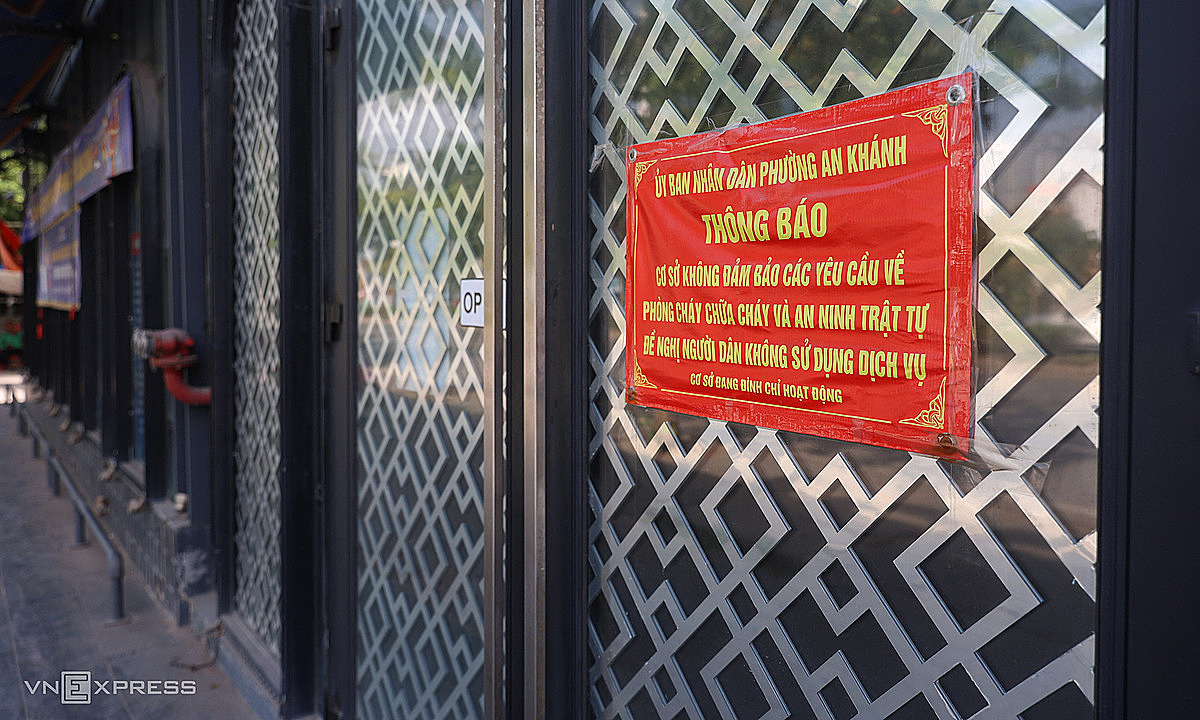Businesses Struggle with Fire Safety Regulations
Hộ kinh doanh, or businesses in Vietnam, are facing significant challenges due to strict fire safety regulations. These regulations have made it difficult for them to construct or use factories, and in some cases, have even forced them to close down.
Increased Stringency of Fire Safety Regulations
Since a fire incident in Binh Duong in September 2022, fire safety regulations have been tightened. The implementation of Decree 136 since the beginning of 2021, along with various guidelines issued in early 2022, has resulted in an increased need for businesses to obtain fire safety certification for their projects.
Representatives from an association in Dong Nai, a province with 30 industrial parks employing 1.2 million workers, reported that nearly all businesses in the province have been affected. Companies have submitted design proposals for fire safety approval, but have not received any response or approval from the fire department. As a result, they are unable to construct new factories, impacting their operations.
Another unnamed company in Dong Nai explained that their warehouse and newly-built office have been unusable for nearly a year due to the approval process. Although the fire safety design for their expansion project was approved, the lack of certification for the fire-resistant paint used in the third-floor storage area has prevented the facility from being fully operational.
Hyosung Vietnam, a major South Korean investor in Dong Nai, has also experienced difficulties in obtaining permits since late 2022. The process of obtaining approvals has become more challenging and time-consuming. The company emphasized that without a clear timeline, they face significant obstacles in expanding their production.
Even Foxconn, a large supplier for Apple, has expressed frustration. Some of their units have been waiting for fire safety inspections for an extended period of two years. This delay is impeding their plans for investment and expansion in Vietnam.
Impact on Other Industries
These fire safety regulations have not only affected manufacturing businesses but also other sectors. For example, earlier this year, hundreds of karaoke establishments in Hanoi and Ho Chi Minh City were forced to close due to their inability to meet the fire safety standards, despite previously meeting the required conditions.
The Japan Chamber of Commerce and Industry in Ho Chi Minh City raised concerns about the impact of the new regulations on 18 projects with a total value of nearly VND 3.1 trillion. The standards set by Decree 136 have affected a wide range of establishments, such as residential buildings, mixed-use buildings, hotels, office buildings, and vehicle repair shops under 500 square meters. These establishments are required to ensure fire safety and obtain design approvals.
Concerns and Suggestions
While businesses support efforts to enhance fire safety, they believe that the implementation process needs to be more realistic and considerate of their operations. They emphasize the need for a shared understanding between businesses and regulatory agencies. The current economic situation is already challenging, and implementing these regulations without a clear roadmap would further burden businesses.
During a recent dialogue with businesses, Chairman of the People’s Committee of Thanh Hoa Province, Do Minh Tuan, acknowledged that the inspections and enforcement carried out by the police are in accordance with regulations. However, he stressed the importance of a “sharing” approach rather than a purely punitive one.
Business associations and companies have urged for the revision and removal of regulations that are unrealistic and difficult to comply with. For instance, they suggest that fire-resistant materials should not be required for structures such as military facilities, chemical plants, or facilities producing materials with higher melting points than steel. They propose the classification of buildings according to their functions to establish more suitable regulations. Additionally, they call for the prompt issuance of specific guidelines and standards, from design approval to inspections, to facilitate compliance for businesses.
These concerns highlight the need for a balance between fire safety requirements and the practicality of their implementation. Businesses hope that necessary revisions will be made to ensure the safety of workers and the smooth operation of companies in Vietnam.
This article was rewritten for Business Today.

